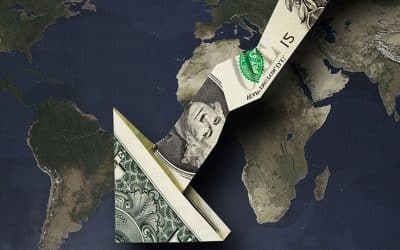What impact do elections have on the markets?

Redacción Mapfre
The results of the municipal and autonomic elections of May 28 and the call for early general elections on July 23 had a major impact on the public, making the front pages of all mainstream and financial press in the following days. But they seem to have had little impact on the markets.
The main index of the Spanish stock market, the IBEX 35, recorded a slight fall of 0.11% on the Monday following the elections (and on the same day that the general elections were called), with hardly any impact on the selective index, in spite of the political uncertainty expected in the coming weeks.
“The market's reaction has been practically nil,” said Alberto Matellán, Chief Economist at MAPFRE Inversión, despite the fact that the stock markets “do not really like uncertainty at all.”
He also pointed out that, in such a highly globalized economy, “the national policy of a particular country has very little influence,” except in particular cases. Hence, growth and interest rates are still the variables that have the greatest influence on share prices.
Traditionally, the Spanish stock market has experienced steeper falls after general elections. They retreated by 5.22% in 1996, after the victory of José María Aznar's PP, or 4.15% in 2004, after the victory of José Luis Rodríguez Zapatero's PSOE.
As a matter of fact, the markets tend to prefer continuity in the La Moncloa presidential palace and decline less the day after: when Aznar was re-elected, the fall was only 1.23%, while stocks were only down 0.29% in 2008 after the re-election of Rodríguez Zapatero.
In recent years there has been only one exception: with the second victory of the popular Mariano Rajoy in 2015, the IBEX 35 slid by 3.62%, even more than the 3.48% it fell in 2011.
However, in spite of the movements seen the day after the elections, politics does not seem to have a major influence on the Spanish markets. Javier Lendines, the General Manager of MAPFRE AM, explained that national stock indexes “tend to be reasonably diversified, so it would be hard to expect a national index to perform very differently than a European index.” “One sector’s good or bad performance is often offset by the performance of other sectors," he added.
There is another reason that supports this lack of correlation: more than 50% of shares in the domestic equity market are in the hands of international investors, who are aware of domestic policy decisions when they affect specific companies and sectors.
The perfect example is the solidarity tax on banks and energy companies. When it was announced in July 2022, the share price of CaixaBank, BBVA, Banco Santander, Banco Sabadell, and Bankinter fell by more than 5%, more or less the same as Solaria and Repsol, although the drop reached 10% during the day.
What usually happens in other countries?
The situation in other countries, such as France and Germany, is quite similar to that in Spain, if we analyze the effects of the last 33 general elections on the main stock indexes. Beyond fluctuations such as that of the Spanish selective index, and when compared with the Eurostoxx50 three and twelve months after the elections, no relevant effect was observed.
“The history of Europe after World War II is characterized by governments alternating between a social democratic party and a conservative party. There have also been grand coalitions. This situation has led to a lack of radical changes in economic policies,” explained Lendines.
However, this could change with the triumph of an extremist party, a possible but, according to Lendines, “unlikely” scenario. “Even in this case, the dependence on European funds would prevent them from taking measures against specific sectors that could raise the prospect of a very negative performance of stocks,” he argued.
Italy, however, could be a different matter as there is a higher correlation between the elections and their effect on the markets. The country has experienced greater variety in governing parties, with Silvio Berlusconi's Forza Italia, or the current more radical executive branch of Giorgia Meloni, in addition to a large number of changes, having seen 18 prime ministers.



